The screeching of rubber tires and the rapid belting of a horn warning you to jump out of the way in a narrow, bustling street is unsettling. Then there’s the sound of the moped growling as it accelerates past you, with the smell of burned exhaust from the engine. The driver doesn’t acknowledge your pedestrian existence as he races towards his final destination giving no care in the world about his next potential victim. Other people in the street don’t fuss about the driver’s murderous carelessness and continue with their daily errands on his, a busy Tuesday afternoon in the city. This Moroccan normality is one of the first things I experience as I walk down the busy labyrinthine streets of the Grand Socco in Tangier. Quite the welcoming!
Inside the earthen walls of this old part of the city, I find myself lost in the crooked limestone alleyways with only glimpses of sunlight seeping through the cracks of worn buildings. The smell of fresh fruit and caramelized pastries wafts in the air, and stray cats appear out of alleyway corners in pursuit of spare leftovers that city dwellers may have been kind enough to share. The pace of the Medina’s atmosphere is quick, and I lose perspective of time as the unevenly paved road beneath my feet ascends causing the muscles in my legs to contract and work harder with every step. Before me, the hill on the top of the Kasbah rises, and as beads of sweat form on the surface of my forehead, I turn into an alleyway to my right. Here, the walls resemble the vibrant cerulean colors of Chefchaouen, and the views open up of the red and white limestone architecture of Tangier. As I make my way deeper into the heart of the hidden treasures of the Kasbah, I am welcomed by the thriving flowers and intricately designed doors that mark the entrance to many secret doorways. Behind me, I hear my friend Emily comment on the composition of the doors, describing their unique beauty. In front of me, my new acquaintance, Christopher, lets out a deep, hoarse chuckle as he leads the way towards his own home. “My door might leave you a little disappointed, ” he says, continuing forward.
Soon enough, we reach the entrance to his abode, designated by a rotting and worn wooden door with a rusted metal padlock. Christopher looks up at the window above and yells something in Liberian English, a language I could barely decipher. Out of nowhere, another man with dark skin, big wide eyes, and a brown patterned sweater pops his head out of the aperture. He takes one look at us, then at Christopher, and tosses down a metal key into his hands. Unaware of what to expect, after Christopher unlocks the padlock, I take a step into the dwelling.
The floor beneath me is tiled unevenly, with designs that are hard to make out because of the chipped paint. The tiles continue halfway up the wall where they meet aqua-hued stone; yet the paint here is also chipping, and the cracks in the walls extend all the way to the ceiling. On the first floor of the building are three other men, Sub-Saharan like Christopher, and they seem surprised to see two American women inside their living quarters. Christopher leads us up a flight of narrow steps, no more than a couple feet wide, to the second floor of the building. This room is no bigger than a traditional college dorm room, and I am startled by four other Sub-Saharan men, sitting on what appear to be their beds: queen sized mattresses squeezed into jagged holes in the walls that are created to be bedrooms. Each man shares a mattress with another, and there are two mattresses to each “room.” There is no electricity and no bathroom in sight, and the closest thing to a kitchen is the rusting camp stove, clearly defunct, in the corner of the den. Christopher pulls out short plastic stools for Emily and me, offering us places to sit, welcoming us timidly into his home.
Squalid living conditions such as these are common for Sub-Saharan refugees as they try to survive on sparse food, whatever money they can scrounge up, and little opportunity for crawling out of poverty. Christopher, wearing a worn blue and white plaid shirt missing its second button, is one of them. From the outside, he is a quiet and humble man in his thirties with a muscular stature and a deep growl of a voice that could intimidate even the toughest of men. His face is friendly and kind with a smile that displays his crooked teeth. The faint scar above his left eye tells a different story.
The First Liberian Civil War broke out in 1989 when Christopher was nine years old. Known as one of Africa’s bloodiest civil conflicts, the war claimed the lives of more than two hundred thousand Liberian civilians while displacing a million others in refugee camps in neighboring countries. Thousands more were mutilated and raped by drugged child soldiers controlled by warlords. Rebel forces under the control of Charles Taylor, a member of the Liberian president’s cabinet, sought to overthrow the regime of then-president Samuel Doe, resulting in a seven-year battle pitting Liberian rebels and neighboring African countries against the repressive regime of Samuel Doe.
Christopher’s father, a Nigerian, worked as a county attorney of Liberia. At the beginning of the war in 1990, he was in the United States seeking treatment for diabetes and was forced to stay there after the fighting shut down the Liberian international airport.
In their attempt to overthrow the government, the rebels sought to kill people associated with the regime, and when they invaded Christopher’s house and found no sight of his father, they caught his mother instead. Christopher’s mother, a woman from Guinea, was also of Mandingo ethnicity, and because the war was also an ethnic war, the rebels wanted to get rid of all Mandingos, in addition to government officials.
With pain in his voice, Christopher described how twenty-five people, some rich and some poor, including his mother, were taken out onto the beach and killed. I sat without saying a word, as Christopher took a minute to gather himself, reliving some of his most haunting and terrifying memories. After a moment, he looked up, took a deep breath, and spoke in a hard voice: “That’s when everything changed.”
Christopher’s life was spared, and the rebels made him a child soldier. “I was forced to fight,” he told me, describing how he and other children were brainwashed, manipulated, and taught to kill. By the age of ten, he was high on cocaine, addicted to all sorts of other drugs, and was a slave of a warlord. He took part in one or two murderous attacks and even came face to face with the man who had murdered his mother. “I didn’t have the opportunity to kill him,” he said rigidly. “I really wanted to.” The man was killed elsewhere on the battlefront.
Sitting with Christopher in his apartment, he mentioned how it was election day for the new president in Liberia. “Living in Liberia is a problem. The country is still a mess. I don’t even know who I want to choose to be president, and I have no confidence in anyone.” The candidates to take over from current President Ellen Johnson Sirleaf include a businessman, a “crazy” football player, and former rebel leader of the group of that killed Christopher’s mother. “A lot of people are just like me,” Christopher says, “just hanging and waiting around for another war.” When I asked him if he would ever return to his native country, he took a moment before stating very simply that he wouldn’t.
In 1991, Christopher deserted the army and slipped over the border to Guinea where he stayed with his uncle and returned to school to further his education. He stayed there for three years, unable to attend a rehabilitation center for drug addiction, until 1994 when he left Guinea for Sierra Leone. There, Christopher met a Nigerian man with a group of ex-rebels involved in pushing drugs. “I had to make a living somehow,” he told me, justifying his decision. However, not long afterward, he was arrested and sent to prison for two years.
During his two years in prison, Christopher told me that it was there that he started reading the Gospels. He explained how his father was a religious bigot, while his mother was Muslim. “I gave my life to Christ,” he said to Emily and me with the glimmer in his eye of a man prepared to tell a fascinating story. “There was a girl who lived not too far away from me, and she was paralyzed from the waist down,” he said. She was a Christian and prayed regularly, and one day, not too far away from where Christopher was standing, she got up from her wheelchair and started walking. “She is still able to walk today, and that was the day I decided to give my life to Christ.”
After serving two years in prison, Christopher fled to Egypt from where he attempted to cross the border fence into Israeli territory. “In Egypt, they want you to cross the border; they will shoot at you if you don’t cross. In Israel, however, this is forbidden,” he explained. He spent two years in Egypt before attempting to cross the fence again, and when he scrambled over the second fence, he was arrested and deported back home to Liberia.
Christopher was not about to give up. He fled Liberia once more and ended up in Tangier in 2010, his first stop to Europe. With only four to five thousand dollars in his pocket, he paid a smuggler to try and get him across to Spain by water. Once again, he was caught and arrested and sent back to Morocco. “I tried every year: 2010, 2011, 2012, four or five times, but never made it across to Spain.” When I asked Christopher if he would ever try to get to Spain again, he responded in a tired and drained voice, “I gave up on Europe. I’m just living life now.”
Today, Christopher lives in Tangier as a resident of Morocco and spends his time volunteering for the church choir at the local Anglican Church. When I asked how he got involved with the church, he responded by telling me that he started praying at the church, and one day a gentleman from London asked him if he wanted to do a reading at the church and preach while he was away in Britain for two weeks. “I didn’t know how to give a sermon,” he said. “I was given the passage from the Bible and tried putting it together myself. Then I started preaching.” Now, Christopher has given sermons in front of hundreds of people at the American church, but he mainly volunteers by running the church choir at the Anglican Church. “I’m no pastor,” he told us with a laugh.
Christopher is one of the strongest people I have ever met. Having endured countless horrors throughout his life, he still attempts to remain positive and give back to the community that has accepted him as their member. “I used to have nightmares every night,” he told me, “They stopped just a couple of years ago, but sometimes I still get flashbacks and start fighting in my sleep.” Because of his flashbacks, Christopher says he tries to avoid sleeping during the day when he gets most of his attacks in his dreams. “I have to stay up until midnight or 1 in the morning, or else I won’t sleep well. I get anxiety and extreme pressure in my chest, and sometimes I feel like I’m about to die.”
When asked if the church does anything to help him with his living situation, Christopher shook his head. “The church is not very united. The Englishman that I preached for only gave me 250 dirhams for each of the four sermons that I preached. Other than that, the church won’t give me money unless I beg for it.” Currently, Christopher and his fellow roommates have to keep up with their monthly rent for their rundown apartment in the Kasbah, excluding electricity and water. “We live the same old life every day: I wake up with a lot of problems to solve. I try to speak the truth, and I live by what I preach.”
Our day with Christopher came to an end as he led Emily and me down the ragged steps of his apartment and back down the narrow streets of the kasbah. The sun was beginning to set over the rooftops of the city, and I watched from behind as he carefully trekked down the steps, leading us back toward the Grand Socco where we would make our way back to our lavish campus.
For a moment, I felt ashamed that I was about to head back to what seemed to be the most extravagant area in the entire city of Tangier: a palace-like campus built entirely of white limestone with emerald green grass and exuberant flowers. Christopher, on the other hand, would climb back up toward the kasbah to his run-down, barely functioning apartment and, like he said before, try to solve a series of problems. As we parted ways, Christopher made it a point to mention that he and his fellow roommates had nothing to eat or cook for dinner that evening, and I was momentarily shocked at his request for a few dirhams so that he could go and buy food. I was hesitant at first before awkwardly handing him twenty dirhams, knowing that it was not much but hopefully enough to help him get by for the evening.
On the way back to campus, I reflected on my time with Christopher. He is extraordinary. He was such a humble man, but with a story that left me astonished at how he continued living the way he does. Christopher is one of many Sub-Saharan refugees trying to make it by in Tangier. His story and commitment to the community do not go unnoticed. I believe in Christopher, and I believe that one day he will find what he is seeking.
(Editor’s note: The photograph above is not of Christopher, but of another typical refugee.)
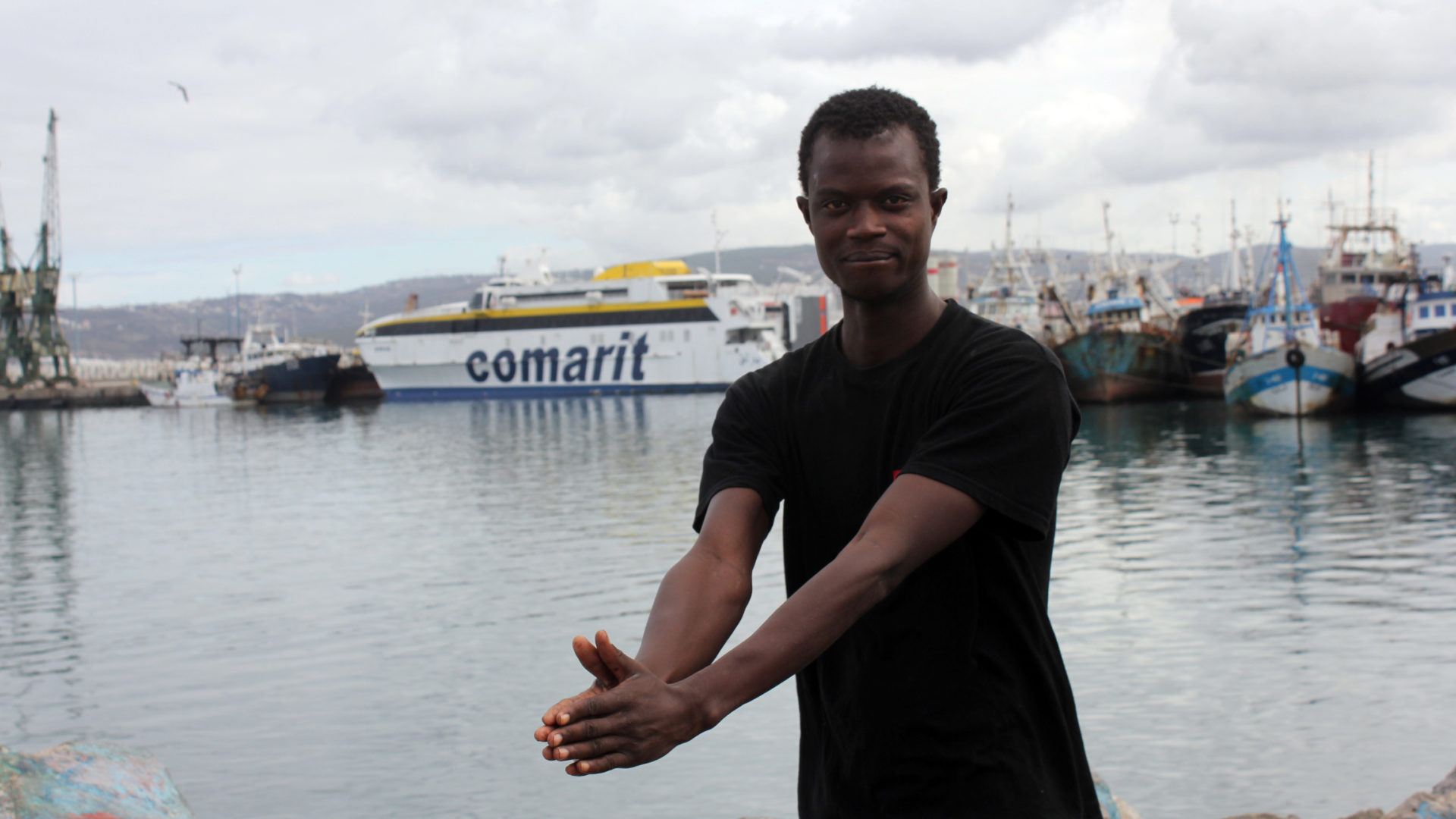
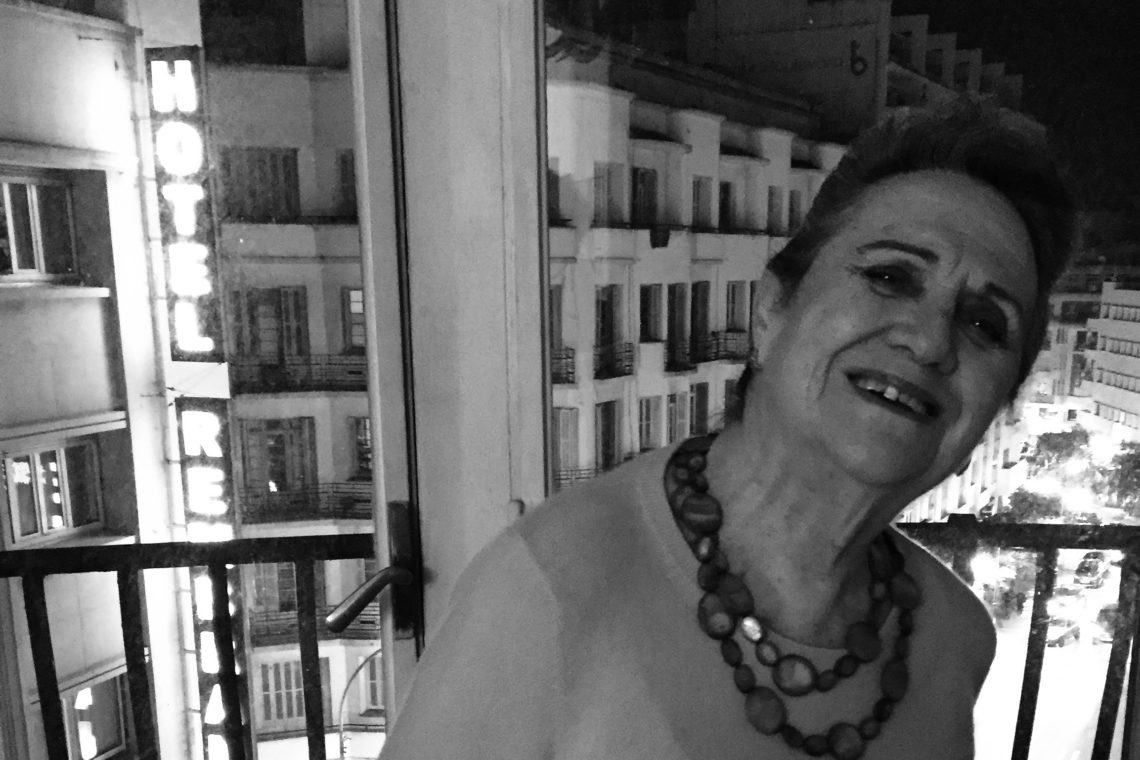
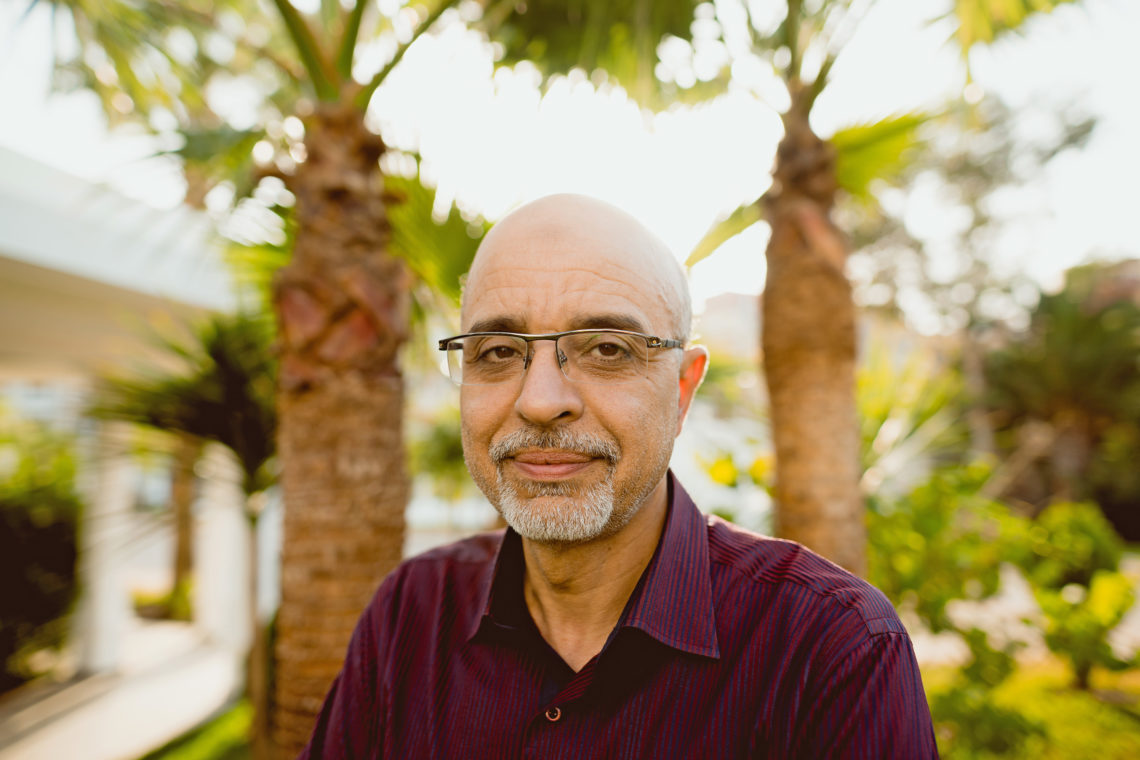
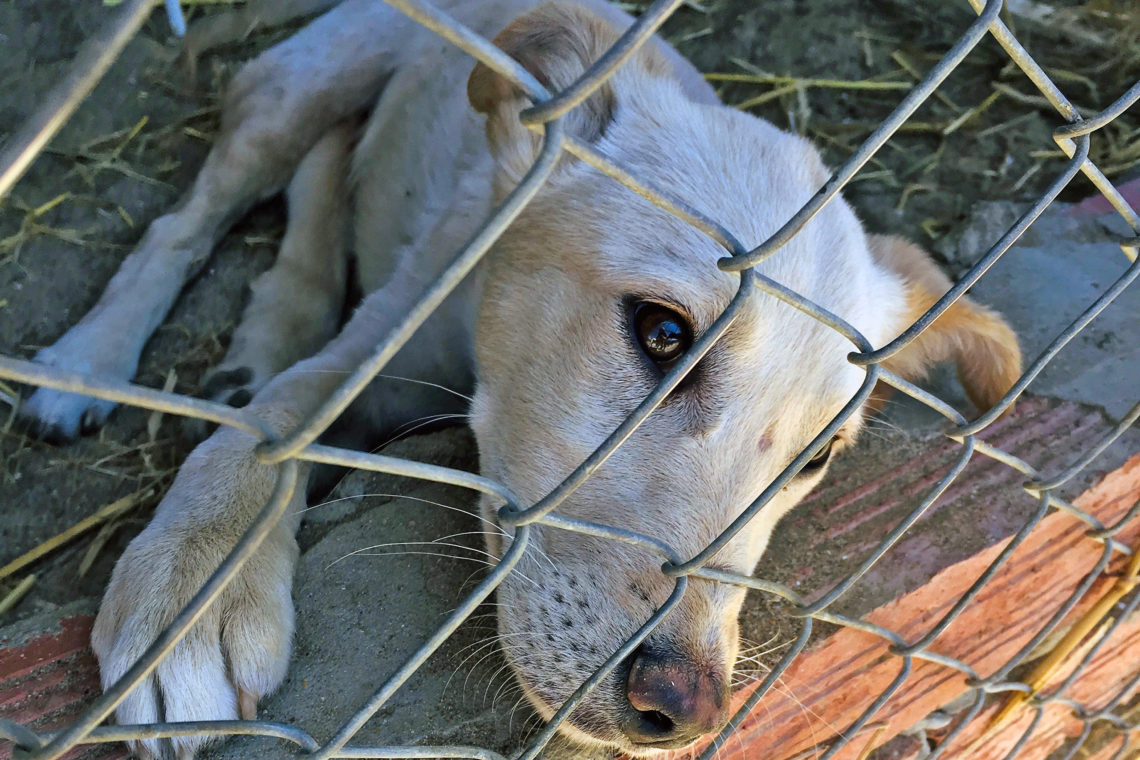
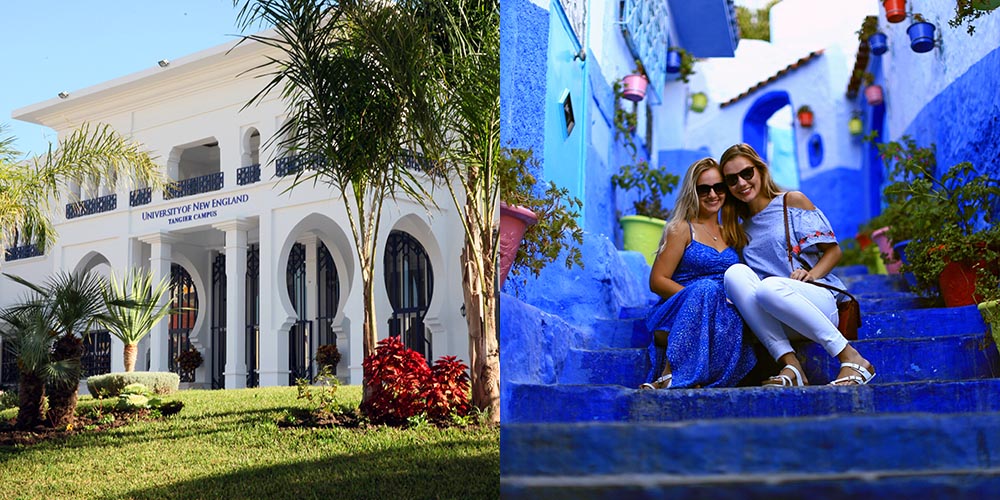

Very interesting article. This is my first read and I came on this blog to learn more about American (more like New England) perspective on my city. Several years ago I went to Massachusetts for an internship and I feel like all of you guys are living the culture shock and everything that I experience in your part of the world in reverse.
As a resident of Tangier, I have a few comments about the things you’ve mentioned in your article.
Traffic: It’s not that we don’t care, it’s just that we learned how to avoid getting hit by cars and other vehicles and vice versa (them avoiding us). Every now and then someone will lose his temper over it (especially at crosswalks) but most of the time it’s not our job nor our duty to enforce traffic rules. I must admit that there’s a dire need for more policing in the city when it comes to traffic.
Keeping our sanity and our calmness is more worthy to us than losing our inner peace. You’ll rarely see someone get upset over something like this or even getting upset at a seller. If customer service messes up, we just have to work with it calmly. It is expected that people sometimes mess up.
Christopher: I engage in small talk sometimes with these immigrants who basically wait for the right moment to immigrate and cross over to Europe which is their dream land. The majority of them are simple and nice people. But as a man, I would be wary of entering their home even if I knew them for long, let alone for a woman. I would say you and your friend Emily were very lucky. Things aren’t as dangerous as in America but don’t turn off your street smart skill just yet.
Campus: Compared to the houses right outside the campus, sure it’s asymmetrical but Tangier is full of pockets of upper-class neighborhoods (Jbel Kbir, some parts of Malabata, Souriyine..etc).